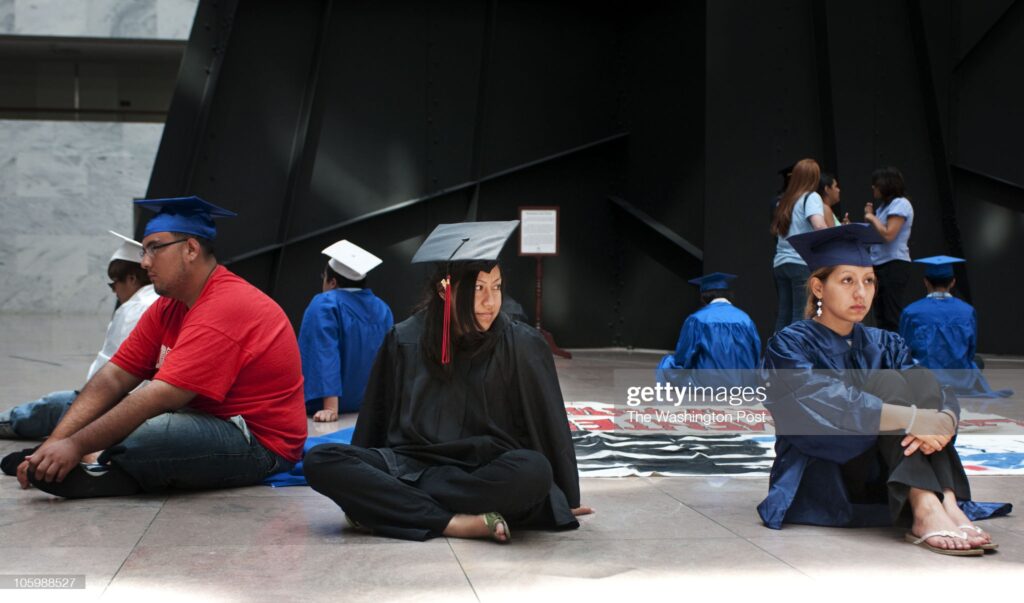- Need for supporting undoc/DACA students through their higher education journey: applying, attending and graduating & even post-grad life – Starting from high school
- Connects how social workers can be impactful when working with this population
- Empowering individuals as well as working to dismantle discrimination
- Goes against code of ethics – education as a human right and should be available to all
- Undocumented/DACA folks navigate and juggle immigration policies, institutional policies, discrimination in many forms, their own trauma related to immigration as well as taking on the student life
- Intersection between policies and their needs shows resilience
- There is a need for physical resource centers at universities and colleges to better support students – resources include asking about basic needs being met, financial needs, emotional needs

Where does research lack?
- Lack of trying to understand the population and their needs
- Ask, collaborate, include undoc/DACA recipients in identifying these needs
- Most studies refer to policies but do not highlight the intersection of how these or other policies can HELP students instead of being the reason behind discriminating towards them
- Or does this mean there is more to discriminate towards undocumented/DACA students than to help them?
- Need institutional research and how different institutions uphold immigration-based discrimination
- Many in the South uphold discrimination policies against undoc/DACA students
- Social work curriculum lacks the need to properly learn about these issues and how to help these communities
- Professional development when working with these populations

We need allies!
In addition, there is also a lack of training and empathy among staff and professors at these institutions. There is little to no discretion from the staff at financial aid offices when addressing the legal status and their family. College counselors have suggested that students drop out of college and work off the books. This is suggested because they believe that even if they receive a college degree, they will not be able to work in their field. There are many gaps within these institutions that fail to meet students’ human rights.
A student’s dignity should not be taken because of their legal status, and everyone is entitled to the universal right to an education. It is critical to advocate for this community that constantly puts itself into difficult situations. For many, bureaucracy is a barrier to access services, and others live with the constant fear of deportation if they seek support. In addition, if they do not have a professional to guide them, they can be at a greater risk of signing documents that they do not fully understand. Our responsibility is to provide students with all of the services needed to make informed decisions.


